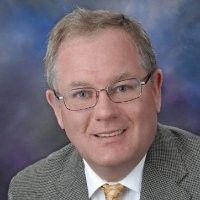On Monday, April 13, the AV industry lost a quiet giant: Kurt Elfers. For the past eight years, I've had the pleasure of calling Kurt a close colleague at AVI Systems, but our friendship goes back over a decade further.

While we worked for competitors in the early 2000s, we would make a point to attend industry events together, such as the early Crestron Masters, just so we could spend a few days learning from each other, sharing war stories, and collaborating on whatever current challenges we were working through.
Kurt was an engineer and programmer by training, and his technical skills were regarded as the best of the best.
Jeff Stoebner, CEO of AVI Systems, recounted walking with him into the headquarters of a large retail company on Thanksgiving Day. “A large video wall in their security network operation center was not performing, and it was just hours before black Friday—a high-pressure situation. I asked Kurt if he was ready, and he quickly said, ‘I thrive in situations like this.’ That was Kurt. And yes, he solved the problem.”
Just as Kurt welcomed the most challenging situations, he did so without any ego, and he was equally willing to build others up. Remembered as an incredibly humble man who was always generous with his time, never in too much of a hurry to lend a hand, Kurt was also one of the sincerest people I’ve ever met.
A colleague summed it up well: “In working with Kurt, he was usually 10 steps ahead in his thinking, but he never made you feel that you were slow, behind him, or inferior. On the occasion that you did offer a solution or approach that he hadn’t considered, he willingly—and humbly—welcomed the insight and input. This is something we can all aspire to emulate in our interactions with others.”
In the AV industry, we have no shortage of challenges we need to solve. Mark Klooster, another longtime friend and colleague, recounted a story Kurt would tell others to illustrate the importance of stepping back and building a good plan instead of simply rushing off to try and solve a complex problem.
“During his early days working at Great America, one of Kurt’s co-workers had just been given a high-profile assignment. He was in their office sitting with his feet up on his desk and just staring off into the distance,” Klooster recalled. “Of course, the boss walked in and wondered what was going on. He asked ‘What are you doing? Why aren’t you working on the project yet?’ The co-worker put his feet down, looked at his boss, and responded, while tapping on his head, ‘Well, you see, I’m still in the thinking part of the project. I’ll get to the working part later when I’m done formulating my plan.’ He then put his feet back up on the desk and returned to staring off into the distance. The boss just shook his head and walked out.”
Possibly the most epic of the stories involving Kurt occurred the evening of April 27, 1986, while he was working the night shift at a satellite monitoring station. Unbeknownst to him, at 11:32 pm CT, an individual using the pseudonym “Captain Midnight” jammed the HBO broadcast signal with a message in protest of HBO’s rates for satellite dish owners. The incident made national headlines, and in the subsequent investigation, the FBI determined that only 12 locations had the capability to transmit the signals. The monitoring station where Kurt worked was one of these.
Calm and collected under interrogation, Kurt would later tell us how he really wasn’t concerned during his interrogation, and that he hadn’t even considered the consequences if the FBI didn’t believe him. As if this wasn’t crazy enough, Kurt would then get the most excited explaining the technical methods the FBI used to identify the font used in the broadcast and how they isolated it to the specific model of character generator used by the perpetrator, later identified as John R. MacDougall.
Again, you just can’t make these stories up. Google it for yourself!
Thank you, my friend, for setting the bar high for us on so many levels, and for the reminder that we all have it in us to be extraordinary. And to Kurt’s wife Kathleen, their son David, and his brother Joe, know that the lessons Kurt taught us, along with his stories, will not be forgotten.
Looking back on everything I’ve learned from my friend, there are three things we each can take away, especially when faced with the current challenges surrounding COVID-19. The first should really be simple: be kind to everyone you meet, offer a helping hand where you can, and always remain completely genuine in your offer.
Second, no matter how smart you are, how well you know the problem, or how set you are on your path, always be open to a better way.
And third, stay calm under pressure. Getting worked up distracts from your ability to face the challenge at hand. Just imagine how much more effective we would all be in tackling challenges if we embraced these three simple lessons.



